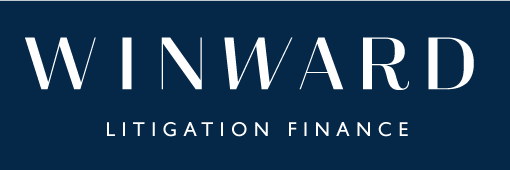What is litigation finance?
A litigation finance transaction is a non-recourse arrangement whereby a third party agrees financially to step into the shoes of the litigant in return for a share of the recoveries. As was explained in a recent English High Court case “a funder of litigation is not forbidden from having rights of control but is forbidden from having a degree of control which would be likely to undermine or corrupt the process of justice."
In England, it is becoming more and more noticeable that a litigation funder is treated akin to a litigant when it comes to the apportionment of costs upon a failure of a case. It therefore is very much the reality that litigation finance is a high risk endeavour. If a case fails, then a litigation funder will in principle lose its entire investment and also be responsible for the recoverable costs of the defendant. A funder will seek to insure against the potential for losses, as Winward will do, but such policies are expensive. The Court cuts a funder no slack and, unlike an unsuccessful claimant, a funder is not going to receive too much sympathy from a judge.
The Winward Way
Winward expects to work with commercial counterparties and sees particular benefits to working directly with corporates wishing to finance individual litigation or a group of claims. Whilst portfolio funding of a law firm’s caseload can be problematic from a conflict-of-interest perspective, no such constraint impacts funding a client directly.
In principle, litigation finance can be applicable to a surprisingly wide variety of cases, and it is very much in Winward’s interest to fund a diversified portfolio. It has no wish to develop a concentration risk in specific sectors. Inevitably, Winward expects that it will primarily fund litigation and arbitration matters that revolve around commercial disputes, whether contractual or tortious, and equally, Winward wishes to fund meritorious group claims. Although Winward will be cautious not to jump onto the band wagon of collective redress, the law is developing and is providing greater degrees of clarity in respect of certain areas (although not in all areas - witness the recent Supreme Court decision). Winward will work in partnership with experienced firms when considering to fund such claims.
Winward also wishes to stick true to a funder’s roots – and so it will look to fund strong or deserving claims that could simply not get off the ground were it not for a funder’s involvement. These range from claims for office-holders, holders of IP rights and individuals involved in matrimonial and trust disputes (after very careful analysis), to claims for victims of corporate or individual wrongdoing, and indeed the David v Goliath claims that have generated some of the highs and lows for funders already. Bilateral investment treaty claims have not yet been mentioned – and that is for a reason. Such claims may promise the moon, but are often difficult, expensive and time consuming. Winward must have regard to the opportunity cost of the claims that it funds and will analyse these claims accordingly.


